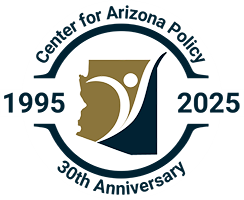Every American citizen should be free to peacefully live and work according to the dictates of his or her conscience without the fear of unjust government punishment. This freedom equally applies to professionals.
Therefore, Center for Arizona Policy (CAP) has diligently sought to protect religious freedom and rights of conscience for professionals in Arizona. CAP has worked with the Arizona Legislature to pass three bills that specifically protect the rights of conscience for professionals.
Protections for Licensed Professionals
In 2012, CAP was able to work with the legislature and the governor to pass a bill into law that protects Arizona professionals who are licensed by the state. Thanks to this law, these professionals cannot have their licenses suspended, denied, or revoked due to the free exercise of their religious beliefs.
Under ARS 41-1493.04, the government cannot “deny, revoke or suspend a person’s professional or occupational license, certificate or registration” for any of the following reasons:
- Declining to provide or participate in providing any service that violates the person’s sincerely held religious belief (except performing the duties of a peace officer).
- Refusing to affirm a statement or oath that is contrary to the person’s sincerely held religious beliefs.
- Expressing sincerely held religious beliefs in any context, including professional context as long as the services provided otherwise meet the current standard of care or practice for the profession.
- Providing faith-based services that otherwise meet the current standard of care or practice for the profession.
- Making business related decisions in accordance with sincerely held religious beliefs such as:
- Employment decisions, unless otherwise prohibited by state or federal law.
- Client selection decisions.
- Financial decisions.
As an example, this law would protect attorneys in Arizona who want to practice law in accordance with their faith. The State Bar of Arizona has considered an ethical rule change that would penalize attorneys who “discriminate” based on “sexual orientation,” “gender identity,” or “gender expression.” These rules could potentially be used to force an attorney to represent clients even if the client’s goals conflict with the lawyer’s religious beliefs. For instance, adoption attorneys could be forced to place children with same-sex couples or risk losing their licenses because of their religious beliefs. However, ARS 41-1493.04 now provides protection for an attorney against such rule change.
Protections for Healthcare Professionals
CAP has also worked to protect the conscience rights of healthcare professionals.
In 2012, CAP worked with the legislature to expand the right of healthcare professionals not to facilitate or participate in an abortion or providing abortion medication.
Under ARS 36-2154, “[a] physician, or any other person who is a member of or associated with the staff of a hospital, or any employee of a hospital, doctor, clinic or other medical or surgical facility in which an abortion has been authorized” does not have to “facilitate or participate” in an abortion if the person “states in writing an objection to the abortion on moral or religious grounds.”
Moreover, a pharmacy, hospital or health professional (or an employee of a pharmacy, hospital or health professional), “who states in writing an objection to abortion, abortion medication, emergency contraception or any medication or device intended to inhibit or prevent implantation of a fertilized ovum on moral or religious grounds” does not have to facilitate or participate in the objected action. In such case, the pharmacy, hospital or health professional (or an employee of the pharmacy, hospital or health professional) has to return to the patient the patient’s written prescription order.
Earlier this year, CAP worked with the legislature to protect the rights of conscience for healthcare professionals as it relates to end-of-life treatment. The law now prohibits work-related discrimination against healthcare providers that exercise their conscience rights by declining to provide medical care with the purpose of causing or assist in causing the death of an individual (ARS 36-1321, 36-1322, 36-1323). For example, a doctor or nurse may not be fired, transferred, demoted, or otherwise penalized for declining to participate in treatment they believe is meant to cause or facilitate in causing the patient’s death. And, if the healthcare provider is penalized for exercising their conscience, they have a civil cause of action for violation of the statute.
The growth of discrimination against professionals for their religious views requires action to proactively preserve their rights of conscience. The cases of Masterpiece Cakeshop and Brush & Nib are examples of what can happen when the government seeks to compel professionals to act in a way that violates their conscience. Therefore, state law should comprehensively and undoubtedly ensure that no individuals in Arizona will be forced to choose between their career and their conscience.
ICYMI – Latest News & Articles of Interest
- The Heritage Foundation recently hosted a panel discussion with three medical doctors, entitled “Gender Dysphoria in Children: Understanding the Science and Medicine.” To watch the video of the discussion click here.
- “Help Your Kids Say ‘No’ to Porn” from the Gospel Coalition
- “More Than Marriage: What’s Behind Polyamory In the Church” from the ERLC

